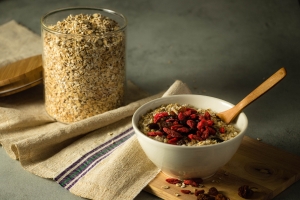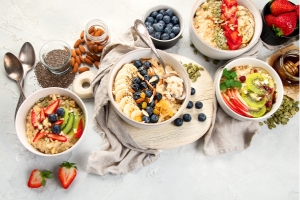Hey everyone!
Let’s talk about something I know so many of us have gone through: the diet merry-go-round. You try one thing, it works for a week, and then you’re back where you started, feeling frustrated and maybe a little bit snacky. I have been there more times than I can count. After trying just about everything, I was looking for something that was simple, filling, and didn’t leave me feeling like I was just eating lettuce all day.
That’s when I stumbled upon a more structured approach: a low-carb plan with a clear calorie target. It took the guesswork out of everything and, honestly, it was a game-changer for me. So today, I want to share a plan similar to the one I followed, hoping it might just be the little push you’re looking for!
So, What Exactly is the “7-Day Low-Carb Meal Plan (1400 Calories)”?

Okay, let’s break it down. It’s super simple, I promise! The main idea is to lower your intake of carbohydrates (like bread, pasta, and sugar) and increase your intake of protein and healthy fats. This encourages your body to start burning fat for energy instead of relying on carbs.
The goal is primarily weight loss, but I have to tell you, the other benefits were what really sold me. I felt less bloated, my energy levels were more stable throughout the day (goodbye, 3 PM slump!), and I just felt clearer. To get these results, the plan focuses on a specific balance of macronutrients, which are your fats, proteins, and carbs. It generally looks like this:
- Net Carbohydrates: Between 10-30% of your daily calories.
- Healthy Fats: Ranging from 50-60% of your daily calories.
- Protein: Around 20-30% of your daily calories.
A Quick Note on “Net Carbs”
You’ll see the term “net carbs” mentioned a lot in this meal plan and in the low-carb world in general. So what does it mean?
Think of it this way: Net Carbs are the carbohydrates that your body actually digests and converts into glucose (sugar), which can impact your blood sugar levels.
The simple formula is: Total Carbohydrates – Fiber = Net Carbs
We focus on counting net carbs instead of total carbs because fiber is a special type of carbohydrate. Your body doesn’t digest it or use it for energy. It passes through your system, helping you feel full and supporting good digestion, all without knocking your body out of its fat-burning mode. By tracking just the net carbs, you get a much more accurate picture of what’s influencing your weight loss journey.
Your Go-To Foods (The “Yes” List)

This is the fun part! You get to eat so much delicious, real food. Here’s a peek at what your grocery list will look like:
- Proteins
- Chicken (breasts, thighs)
- Beef (ground, steak)
- Pork (sausage, chops)
- Eggs
- Fish and seafood
- Vegetables (Non-Starchy)
- Leafy greens (spinach, kale, lettuce)
- Broccoli and cauliflower
- Zucchini and spaghetti squash
- Green beans
- Bell peppers and onions
- Mushrooms
- Healthy Fats
- Avocado and avocado oil
- Olive oil
- Butter
- Nuts and seeds (in moderation — think a small handful, as the carbs and calories can add up quickly)
- Cheese
- Fruits (Low-Sugar)
- Berries (strawberries, blueberries, raspberries)
Foods to Avoid (The “No-Go” List)

To make this work, there are some things you’ll need to press pause on for the week. It might seem tough, but remember, it’s just for a little while!
- Sugar (soda, candy, baked goods, honey, maple syrup)
- Grains (bread, pasta, rice, cereal, corn)
- Starchy Vegetables (potatoes, sweet potatoes, corn)
- Most Fruits (bananas, grapes, mangos are high in sugar)
- Legumes (beans, lentils, chickpeas)
- Processed “low-fat” diet foods (they are often packed with sugar!)
Important Things to Know Before You Start
Alright, before you run to the grocery store, let’s have a quick heart-to-heart. This is super important stuff!
- Warning: Talk to Your Doc! I am not a doctor or a nutritionist, just a friend sharing my experience. Before you start any new diet plan, please, please chat with your doctor or a registered dietitian. They can help you make sure this is the right and safe choice for you and your personal health needs. This is especially critical if you have any pre-existing health conditions like kidney disease or diabetes.
- Water is Your Best Friend. Seriously. You need to stay hydrated. Aim for at least 8 glasses of water a day. It helps with everything from keeping you full to flushing out your system. I carry a big water bottle with me everywhere I go.
- Your Results May Vary. Our bodies are all unique! A friend of mine might lose 5 pounds in a week, and I might lose 2. The scale is not the only measure of success. Pay attention to how your clothes fit and how you feel.
- Warning: Manage Your Electrolytes! The first few days can be tricky as your body adjusts. You might experience the “keto flu,” which can feel like a mild flu—headaches, fatigue, and irritability. This is often due to an electrolyte imbalance. Adding a pinch of salt to your water helps, but your body needs more than just sodium. Be sure to include foods rich in potassium (like avocado, spinach, and mushrooms) and magnesium (like almonds, leafy greens, and pumpkin seeds) to feel your best.
- Meal Prep is a Lifesaver. I cannot stress this enough. Take an hour or two on Sunday to chop veggies, cook some chicken, or portion out snacks. When you have healthy food ready to go, you’re so much less likely to reach for something off-plan when you’re hungry and tired.
Sample 7-Day, 1400-Calorie Low-Carb Meal Plan

To give you a better idea of what a day of eating looks like, here’s a sample menu. Each day is designed to be around 1400 calories. For each meal listed below, the idea is to have one serving of that specific recipe.
A quick note on these recipes: Don’t let the names intimidate you! “Fathead Dough,” for example, is just a popular low-carb dough made from mozzarella cheese, cream cheese, egg, and almond flour. A quick search online will give you the full recipe for any of these delicious dishes.
Day 1 ≈ 1 376 kcal
- Breakfast (263 kcal | 14.4 g net carbs | 18.2 g protein | 14.8 g fat) – Zucchini, Corn & Egg Casserole
- Lunch (310 kcal | 12.5 g net carbs | 28 g protein | 15 g fat) – Slow‑Cooked Beef with Carrots & Cabbage
- Snack (205 kcal | 2 g net carbs | 5 g protein | 19 g fat) – Keto Coffee Cake
- Dinner (598 kcal | 11.1 g net carbs | 43.2 g protein | 40.2 g fat) – Lemon‑Garlic Butter Chicken & Green Beans
Totals: 40 g net‑carbs (12 %) · 94 g protein (27 %) · 89 g fat (58 %)
Day 2 ≈ 1 398 kcal
- Breakfast (338 kcal | 4.2 g net carbs | 20 g protein | 27.1 g fat) – Sausage, Mushroom & Feta Egg Bake
- Lunch (430 kcal | 32 g net carbs | 32 g protein | 17 g fat) – Spaghetti Squash with Meat Sauce
- Snack (220 kcal | 2 g net carbs | 3 g protein | 21 g fat) – Low‑Carb Millionaire Bars
- Dinner (410 kcal | 2 g net carbs | 45 g protein | 24 g fat) – Spinach‑Stuffed Chicken Breasts
Totals: 40.2 g net‑carbs (11.5 %) · 100 g protein (28.6 %) · 89 g fat (57.4 %)
Day 3 ≈ 1 370 kcal
- Breakfast (320 kcal | 14 g net carbs | 37 g protein | 12 g fat) – Chicken Fajita Bowl
- Lunch (525 kcal | 13.5 g net carbs | 23.5 g protein | 39 g fat) – Crockpot Sausage & Peppers
- Snack (155 kcal | 4.1 g net carbs | 3.3 g protein | 13.7 g fat) – Avocado Chocolate Mousse
- Dinner (370 kcal | 10.8 g net carbs | 31 g protein | 26 g fat) – Dairy‑Free Pizza Chicken Bake
Totals: 42.4 g net‑carbs (12.4 %) · 94.8 g protein (27.7 %) · 90.7 g fat (59.6 %)
Day 4 ≈ 1 375 kcal
- Breakfast (286 kcal | 5.2 g net carbs | 23.4 g protein | 18.3 g fat) – Egg Casserole with Green Chiles
- Lunch (370 kcal | 15 g net carbs | 24 g protein | 17 g fat) – Creamy Taco Soup
- Snack (184 kcal | 3.5 g net carbs | 7.3 g protein | 15 g fat) – Keto Fathead Dough Bites
- Dinner (535 kcal | 9.7 g net carbs | 41 g protein | 39 g fat) – Low‑Carb Cabbage Taco Skillet
Totals: 33.4 g net‑carbs (9.7 %) · 95.7 g protein (27.8 %) · 89.3 g fat (58.5 %)
Day 5 ≈ 1 406 kcal
- Breakfast (251 kcal | 4.6 g net carbs | 10.1 g protein | 20.8 g fat) – Cinnamon Cream‑Cheese Roll‑Ups
- Lunch (438 kcal | 16.8 g net carbs | 48 g protein | 23.9 g fat) – Ground Beef & Cabbage Stir‑Fry
- Snack (232 kcal | 4.7 g net carbs | 5.7 g protein | 17.3 g fat) – Creamy Keto Chia Pudding (3 Ways)
- Dinner (485 kcal | 12.3 g net carbs | 35 g protein | 31 g fat) – Easy Low‑Carb Chicken Casserole
Totals: 38.4 g net‑carbs (11 %) · 98.8 g protein (28 %) · 93 g fat (59 %)
Day 6 ≈ 1 388 kcal
- Breakfast (330 kcal | 4 g net carbs | 11 g protein | 30 g fat) – Keto Cinnamon Mug Cake
- Lunch (360 kcal | 12 g net carbs | 42 g protein | 13 g fat) – Chicken Parmesan with Zucchini Noodles
- Snack (226 kcal | 9 g net carbs | 9 g protein | 16 g fat) – Spaghetti Squash Pizza Casserole
- Dinner (472 kcal | 13 g net carbs | 34.6 g protein | 29.5 g fat) – Slow‑Cooked Pork & Fennel Ragu
Totals: 38 g net‑carbs (11 %) · 96.6 g protein (27.8 %) · 88.5 g fat (59.7 %)
Day 7 ≈ 1 417 kcal
- Breakfast (338 kcal | 4.2 g net carbs | 20 g protein | 27.1 g fat) – Keto Cream Cheese Pancakes
- Lunch (397 kcal | 14 g net carbs | 30 g protein | 23 g fat) – Creamy Taco Soup (30 Minutes)
- Snack (226 kcal | 9 g net carbs | 14 g protein | 15 g fat) – Spaghetti Squash Pizza Casserole
- Dinner (456 kcal | 12 g net carbs | 39 g protein | 26 g fat) – Healing Chicken Turmeric Soup
Totals: 39.2 g net carbs (11.3 %) · 103 g protein (29.7 %) · 91.1 g fat (59.0 %)
Don’t Forget Your Non-Scale Victories (NSVs)!
The number on the scale is just one piece of the puzzle! I encourage you to grab a small notebook and at the end of each day, jot down a few notes. Ask yourself:
- How were my energy levels today?
- Did I sleep more soundly?
- Are my clothes feeling a little looser?
- Do I have less bloating or puffiness?
- Is my mind feeling clearer?
These “non-scale victories” are amazing motivators and the real signs that you’re making positive changes for your health!
A Final Word of Encouragement
Remember, this is a journey, not a race. The goal is to build healthier habits that make you feel strong, energized, and happy in your own skin. This 7-day plan can be a fantastic tool to reset your system and show you just how good you can feel without all the extra sugar and processed carbs. After the week is over, think about what comes next. The principles you learn here—focusing on whole foods, protein, and healthy fats—can easily be adapted for a long-term, sustainable lifestyle.
Be patient and kind to yourself on this journey. Some days will be easier than others, and that’s perfectly okay. Progress is what matters, not perfection.
You’ve got this!




